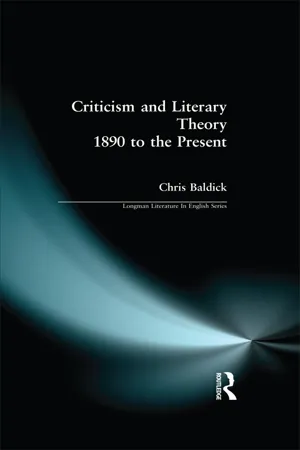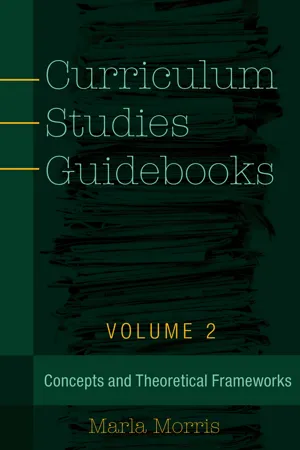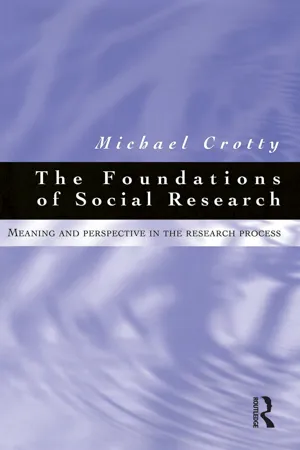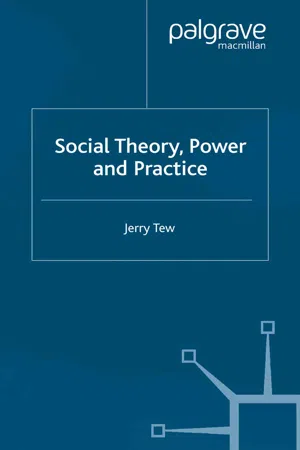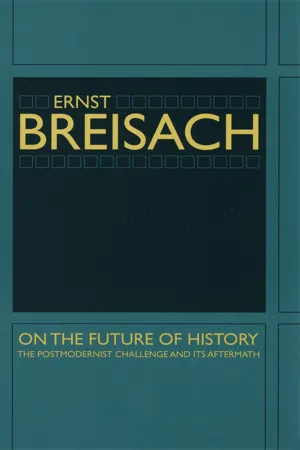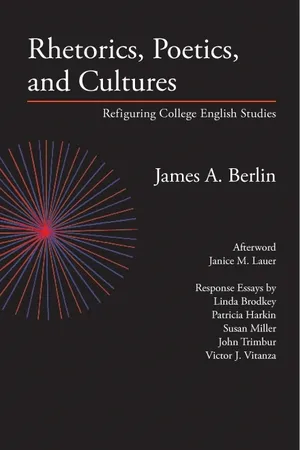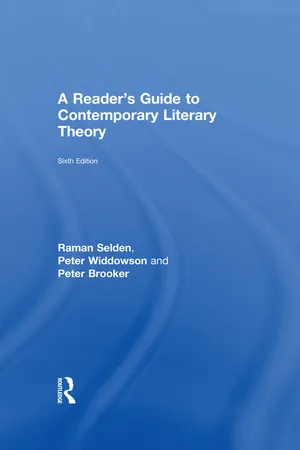Literature
Post-Structuralism
Post-structuralism is a theoretical approach that emerged in the mid-20th century, challenging the idea of stable, fixed meanings in language and literature. It emphasizes the instability and fluidity of language, rejecting the notion of a single, objective truth. Post-structuralist literary analysis often focuses on deconstructing binary oppositions and exploring the complexities of language and power dynamics within texts.
Written by Perlego with AI-assistance
Related key terms
1 of 5
12 Key excerpts on "Post-Structuralism"
- Chris Baldick(Author)
- 2014(Publication Date)
- Routledge(Publisher)
Cantos ,and literary texts are commonly seen as referring to realities of social injustice rather than to their own fictiveness. Even so, it is noticeable that these positions usually retain the assumption that literary works are valuable to the extent that they ‘subvert’ the dominant ideology or ‘transgress’ some restrictive boundary imposed by it. The melodrama (if it is that) of toppled ogres and of barriers endlessly broken seems stubbornly persistent. Critical and theoretical debate since 1968 has involved several ferocious contests, between formalist and historicist camps, and on many other fronts; but the old humanist doctrine that the best literature is – and should be – liberating has commanded remarkably broad assent.Textualities: Structuralism and BeyondAlthough there were signs of some attention in the 1960s to linguistic and anthropological theories of the kind known as ‘structuralist’ – notably the holding of a conference on structuralism at Johns Hopkins University in 1966 – it was in the 1970s that the appeal of ‘structural analysis’ asserted itself so far as to impinge upon literary-critical debate in the English-speaking world. This despite the fact that in France, the structuralist ‘moment’ had already passed by the late 1960s. The most obvious indication that a powerful but unfamiliar school of thought had arrived was the appearance of numerous guides, synopses, and introductory works on structuralism, many of them directed towards those engaged in literary study: Robert Scholes’s Structuralism in Literature: An Introduction (1974), Jonathan Culler’s Saussure (1976), and Terence Hawkes’s Structuralism and Semiotics (1977) were widely-consulted beginners’ guides, while the more substantial critical engagements with – and adaptations of – the new movement included Fredric Jameson’s The Prison-House of Language (1972), David Lodge’s The Modes of Modern Writing (1977) and Jonathan Culler’s Structuralist Poetics- eBook - PDF
Face to Face
Bakhtin in Russia and the West
- Carol Adlam, Rachel Falconer, Vitalii Makhlin, Leslie Pinfield, Carol Adlam, Rachel Falconer, Vitalii Makhlin, Leslie Pinfield(Authors)
- 1997(Publication Date)
- Sheffield Academic Press(Publisher)
In decen-tralizing the text they attest to an organization centred around the author's 136 Face to Face position. Poststructuralists are aware of the ambiguity of their arguments, but they interpret such ambiguity as a necessary dialectic. What is the result of such a dialectic? It is striking that all three of these above-men-tioned premises come from an ideological or even political sphere. There are of course texts which, beyond their aesthetic function, proselytize the reader in order to propagate a certain ideology. But it is the aesthetics of the literary text which concern literary scholarship. Poststructuralism is clearly not interested in the specificity of aesthetics. This is curious, in as much as it is precisely an aesthetic attitude towards the text which trans-forms a hierarchy of speech instances into dialogue, rhetoric into the beauty of speech, and a unified system of firm concepts into a human architectonic, into proportion in thought. Where does such an evidently non-specific understanding of literary authorship come from? Poststructuralism denies the author's outsideness in relation to the text, arguing that authorship is necessarily entangled in the textual network. It is not the fictional world of the text which is ques-tioned, but the real world beyond the text. Thus, the fictional world turns out to be the real world, and the real author turns out to be a fictional phenomenon. The image of the author is the author. There is no longer a difference between fiction and reality, since in producing texts we create the world in which we live. In consequence, any manipulation of the text becomes a manipulation of life, and hierarchies, rhetoric and centraliza-tion are no longer susceptible to a fictionalization process which would neutralize their manipulative potential. Neither can there be a unity of the text, for the image of the author is no longer in a position to control such a unity. - eBook - PDF
Curriculum Studies Guidebooks
Volume 2- Concepts and Theoretical Frameworks
- Marla B. Morris(Author)
- 2016(Publication Date)
For others, like Michel Serres (2000), it is about nonlinear notions of time and multiplicities. Deleuze and Guattari (2000) introduce notions of deterritorialization, transversality, desir- ing machines, and schizoanalysis. For Donna Haraway (1997), it is about the posthuman. For Zizek (2009), it is about gaps and discontinuities. For Derrida (1995a), it is about the aporia and undecidables. James Williams (2005) tells us that poststructuralism is a thorough disruption of our secure sense of meaning and reference in language, of our understanding of our senses in the arts, of our understanding of identity, of our sense of history and its role in the present, and of our understanding of language as something free of the work of the unconscious. (p. 3) The main point in the above citation is that for poststructuralists our un- derstanding of reality is no longer secure. The uncertainty of thought—in all these various manifestations—will be demonstrated in this chapter by ex- ploring the works of the major poststructural thinkers and the ways in which curriculum theorists have been influenced by these thinkers. Pinar, Reynolds, Slattery, and Taubman (1995) define poststructuralism this way. They state, In Modern French Philosophy, Vincent Descombes (1980) locates the emergence of post- structuralism in France in the 1960s as a response to the intellectual scene in Paris. In its very name poststructuralism reveals its ties to structuralism, and indeed poststructur- alism is a response to those theories which purported to discover invariant structures in society, the human psyche, consciousness, history, and culture. Poststructuralism, then, is both an assault on structuralism and also an outgrowth of it. (p. 452) As the above writers point out our knowledges, our consciousness, culture, and the notion of history are unhinged. Reality is not what it seems. Further, there is no longer a Kantian thing-in-itself. - eBook - ePub
The Foundations of Social Research
Meaning and Perspective in the Research Process
- Michael Crotty, SAGE Publications Ltd(Authors)
- 1998(Publication Date)
- SAGE Publications Ltd(Publisher)
Post-Structuralism retains structuralism’s commitment to de Saussure’s view that the meaning of words derives from their relationship to one another and not from any postulated relationship to non-linguistic reality. However, it places a much more intense focus on the origins of language. As one would expect, there is no unified voice to be heard here. We find language being situated within societal relationships of power (Foucault) and within the unconscious (Lacan), to give just two examples. In such exercises, the difference between Post-Structuralism and structuralism stands forth in clear relief. Structuralism looks for decisive shaping factors in structural forms discoverable within society or the unconscious, or both. Not so Post-Structuralism. Structures no longer offer the life line they were once seen to be throwing to the shipwrecked. There is no life line to offer. Post-Structuralism has abandoned positivism. It remains ahistorical and theoretical. It still offers its mild invitation to demystify the experience of reality. Above all, it is as anti-humanist as ever. But claims to being ‘scientific’ have well and truly gone.Indeed, for all the écht with which the transition from structuralism to Post-Structuralism has invariably been announced, the latter clearly exhibits a remarkable fidelity to all but one of the five major structuralist motifs we identified above: positivism seems the sole casualty of this bloodless revolution in thought. (Milner 1991, p. 76)In the move to Post-Structuralism, Barthes takes his ‘death of the author’ a step forward. He writes of the distinction between ‘readerly’ (lisible ) and ‘writerly’ (scriptible ) texts, that is, between texts that envisage a merely passive, receptive reader and those that call upon the reader to be an active creator of meaning. This is an important ingredient in his Post-Structuralism. The readerly text is bourgeois text. It is realist or classical in form and confirms readers in the subject position assigned to them by culture. Writerly texts, on the contrary, are texts that explode convention and shatter the reader’s wholeness. In similar vein, Barthes contrasts ‘the text of pleasure’ with ‘the text of bliss’. The former is comfortable, the latter unsettling and crisis-provoking. Writerly texts, or texts of bliss, are destabilising for both society and the individual ego (Barthes 1975).Foucault’s move from the structuralist orientation he displayed in the 1960s to his 1970s Post-Structuralism can be detected in his treatment of power.His work in the 1960s focused on language and the constitution of the subject in discourse. The individual subject was an empty entity, an intersection of discourses. In his later work Foucault shifted from linguistic determination to the view that individuals are constituted by power relations, power being the ultimate principle of social reality. (Sarup 1993, p. 73) - eBook - ePub
Foundations of Social Research
Meaning and perspective in the research process
- Michael Crotty(Author)
- 2020(Publication Date)
- Routledge(Publisher)
Post-Structuralism retains structuralism’s commitment to de Saussure’s view that the meaning of words derives from their relationship to one another and not from any postulated relationship to non-linguistic reality. However, it places a much more intense focus on the origins of language. As one would expect, there is no unified voice to be heard here. We find language being situated within societal relationships of power (Foucault) and within the unconscious (Lacan), to give just two examples. In such exercises, the difference between Post-Structuralism and structuralism stands forth in clear relief. Structuralism looks for decisive shaping factors in structural forms discoverable within society or the unconscious, or both. Not so Post-Structuralism. Structures no longer offer the life line they were once seen to be throwing to the shipwrecked. There is no life line to offer. Post-Structuralism has abandoned positivism. It remains ahistorical and theoretical. It still offers its mild invitation to demystify the experience of reality. Above all, it is as anti-humanist as ever. But claims to being ‘scientific’ have well and truly gone.Indeed, for all the éclat with which the transition from structuralism to Post-Structuralism has invariably been announced, the latter clearly exhibits a remarkable fidelity to all but one of the five major structuralist motifs we identified above: positivism seems the sole casualty of this bloodless revolution in thought. (Milner 1991, p. 76)In the move to Post-Structuralism, Barthes takes his ‘death of the author’ a step forward. He writes of the distinction between ‘readerly’ (lisible) and ‘writerly’ (scriptible) texts, that is, between texts that envisage a merely passive, receptive reader and those that call upon the reader to be an active creator of meaning. This is an important ingredient in his Post-Structuralism. The readerly text is bourgeois text. It is realist or classical in form and confirms readers in the subject position assigned to them by culture. Writerly texts, on the contrary, are texts that explode convention and shatter the reader’s wholeness. In similar vein, Barthes contrasts ‘the text of pleasure’ with ‘the text of bliss’. The former is comfortable, the latter unsettling and crisis-provoking. Writerly texts, or texts of bliss, are destabilising for both society and the individual ego (Barthes 1975).Foucault’s move from the structuralist orientation he displayed in the 1960s to his 1970s Post-Structuralism can be detected in his treatment of power.His work in the 1960s focused on language and the constitution of the subject in discourse. The individual subject was an empty entity, an intersection of discourses. In his later work Foucault shifted from linguistic determination to the view that individuals are constituted by power relations, power being the ultimate principle of social reality. (Sarup 1993, p. 73) - eBook - PDF
- J. Tew(Author)
- 2002(Publication Date)
- Palgrave Macmillan(Publisher)
Therefore, this position must be constructed as a ‘power without a power’, in the sense that, while it does not set out to violate, it must nevertheless be a site of power, since ‘a powerless justice is not justice’ (Derrida 1992: p. 11). Thus it may be seen that poststructuralism can provide rich and valuable insights into the degree to which modernity depends on par- ticular fixed or ‘logocentric’ modes of language, where the emphasis is always on the determinate character of a social world of things-in- themselves whose intrinsic meanings can be captured and given to us transparently through the use of the corresponding linguistic term. Such systems of language may be seen to depend on a hierarchically ordered framework of binary opposites, reflecting the fundamental dualisms at the centre of modernist thought. Deconstruction can offer a means whereby to disrupt and decentre this, opening up the politics of how meaning (and the subordination of those constructed as ‘other’) may have been fixed through the operation of particular modes of signification. Derrida’s move towards fixing a basis for emancipatory theory and practice also provides a direction which may be fruitful in achieving some degree of rapprochement between structuralist and poststruc- turalist critical perspectives. While both provide conceptual armouries for penetrating beneath the surfaces of modernism, there has remained considerable space for acrimonious debates between the two. While poststructuralists have seen a tendency for essentialism in concepts of capital or patriarchy, structuralists have argued that an endless focus on indeterminacy provides an unfortunate ‘smokescreen’ over issues of systematic oppression and inequality. A way forward would seem to be to reconceptualise larger-scale as well as local struggles as an ongoing contestation of alternative fixings of discursive and material relations. - eBook - ePub
Literary Theory
A Practical Introduction
- Michael Ryan(Author)
- 2017(Publication Date)
- Wiley-Blackwell(Publisher)
CHAPTER 4 Post-StructuralismAn Introduction to Post-Structuralism
There have always been two traditions in philosophy. One asserts that there are truths that are universal and eternal. They stand outside history and the physical world and are transcendental. The other school claims that the world is physical and historical and that any truth we arrive at about it is equally historical, equally located within the physical universe. There is no transcendental realm of spirit or ideality. The first tradition, which is often allied with religion, provides a strong claim of authority for those interested in using philosophy to anchor ideals of social order. The second is closer to science than to religion, and it promotes the ideal of progressive change.Disputes between these two positions occasionally break out, and one such war erupted in 1967, when a French philosopher named Jacques Derrida strongly reasserted the claims of the second position in three books – Writing and Difference, Of Grammatology, and Speech and Phenomenon. He argued that the most recent attempts to assert the first or absolutist and foundationalist position in the phenomenology of Edmund Husserl and in the structuralism of Claude Levi-Strauss were mistaken. Husserl argued that all truth was like geometry: one could in one’s mind picture an ideal triangle. It exists outside time and place in an ideal or transcendental realm. Such truth, Husserl argued, qualifies as universal and absolute. Levi-Strauss, an anthropologist, claimed to have located the basic universal structures of human culture.To understand what was at stake, think about how your own mind works. In your everyday life, you experience things in something like a flow, an ongoing stream of awareness that is situated in time and space. It is limited in many ways. You only experience a single historical moment and a very circumscribed space. You cannot attain anything like universality, knowing everything everywhere for all time. But think again. Your mind possesses an ability to abstract. Before you is a society you might be inclined to think of as something of a slave society. People do nothing but work most of the time, and most of the work produces value and wealth for a very small sliver of the population – investors, large property-owners, corporate executives, and so on – who reap the benefits of others’ labors. Society might seem like a huge pyramid with a small group at the top and everyone else arranged beneath them in a descending order of increasingly contemptible and distasteful labors. The pyramid is an abstraction like a geometric triangle. As you may recall from geometry class, there are no perfect triangles in the actual world, but you can think of a perfect one, abstractly, in your mind. You can construct a mental abstraction from what you see before you, and that abstract model can be applied to societies all over the globe. You now are getting closer to a truth that might be universal in Husserl and Levi-Strauss’ sense. All societies are pyramids. You have your universal idea and your universal structure. - eBook - PDF
Theorising Welfare
Enlightenment and Modern Society
- Sue Penna, Martin O′Brien(Authors)
- 1998(Publication Date)
- SAGE Publications Ltd(Publisher)
With this in mind, we begin by examining poststructuralism's relationships to the 'crisis of Marxism'. We then go on to discuss the ways that poststruc-turalism challenged dominant interpretations of social progress, before outlining important features of the work of Michel Foucault. As in all the perspectives we examine, there are variations in the ways that poststruc-turalist insights have been developed in the analysis of welfare and we outline some of these later in the chapter. The crisis of Marxism Poststructuralism represents a rejection of the major tenets associated with Enlightenment theories and philosophical traditions: those which envis-age a universal subject (the working class, the rational actor), an essential human nature (species being, self-interest), a global human destiny or collective social goal. It involves a rejection of Marxism, liberalism and 106 Against Enlightenment scientific modes of thought in which human history is claimed to repre-sent a unilinear development. Poststructuralist analyses have called into question the central authority of science, philosophy and theory through-out Western cultures (Lemert, 1994). Poststructuralism developed in France and the USA around a number philosophers -notably Michel Foucault, Julia Kristeva, Jacques Derrida and Luce Iragary. Derrida 'deconstructed ' major traditions in Western social thought, showing their vulnerability to endlessly different interpre-tations and readings. The sense or meaning of such traditions derives from the impermanence and inconsistency of the concepts they develop: insta-bility, not stability, is what underpins their meanings. These instabilities in the canons of Western philosophy expose the play of a cultural politics in the validation, centralisation or marginalisation of interpretations and readings. Derrida's work has been taken up widely in media and cultural studies, English and literary studies and has also influenced sociological analysis. - eBook - PDF
On the Future of History
The Postmodernist Challenge and Its Aftermath
- Ernst Breisach(Author)
- 2007(Publication Date)
- University of Chicago Press(Publisher)
Scholars engaged in the endeavor were confident that they had found the answers to the dilemmas of modern thought and, therefore, could lift the burden of progress off the shoulders of history. History would no longer need to demonstrate and actively cooperate in bringing about progress’s fulfillment. Postmodernity would bring a human condition freed from the travails of the past by virtue of the dominance of change. In the absence of all elements of permanence or even long durations, now considered dangerous, life and its course would no longer be marked by the complexities of intertwining change and continuity. The existential tension would be defused by con-stant efforts at clearing impedances to change. To that end, the structural postmodernist expectation of modernity’s end in a state of ultimate conti-nuity must yield to one of endless change. Poststructuralist postmodernists set out to develop a new way of knowing, writing, and using history in a world of pure flux. The challenge to historians insisting on dealing with the fullness of life, including an undiminished dimension of time, was funda-mental. In the field of history, poststructuralist postmodernism has been cham-pioned by two groups of scholars: one clustered its works around the issue of the narrative, and the other focused more on wider issues in the theory of history. But both affirmed a world in ceaseless flux that had no inherent meaning or order. Historians could not rely, in comprehending and analyzing the past, on consciousness turning perceptions into concepts (conforming to the world) and expressing findings through the passive language. That perspective on the world was full of temptations of illusionary constants and the claims made for them. After the linguistic turn, language as de-finer of reality as well as of meaning offered to all scholars a world with infinite possibilities for construction unhindered by the stable features of objective entities. - eBook - PDF
- Mel Churton, Anne Brown(Authors)
- 2017(Publication Date)
- Red Globe Press(Publisher)
As discussed in Chapter 3, structuralism presents an analysis of social life that is based largely upon the nature of language. The most famous proponent of structuralism, Levi-Strauss (1967), argued that language derives from society and is a constraining influence rather than a liberating one. Strauss rejected the claims of action theorists who argued that what marks out human beings as different from animals is their ability to use language. Instead Strauss argued that humans do not control lan-guage, it controls them. Poststructuralists sought to build upon this argument, particularly Foucault (1965). The second influence on the development of poststructuralism has been postmodernism. An issue of particular relevance is postmodernism’s rejection of the modernist claim that objective knowledge exists and can be uncov-ered through systematic and rigorous study. Instead, postmodernists argue that knowledge is merely a matter of interpretation – that is, it is a collec-tion of narratives or versions of social reality. Knowledge is not social fact but social ‘fiction’. Poststructuralists have seized upon this idea and analysed soci-ety in terms of how competing narratives serve to define the social world and individuals’ ‘experience’ of knowledge. The poststructuralist debate therefore involves two main arguments: (1) lan-guage shapes thought and structures life experiences, and (2) knowledge is nothing more than a myriad of competing versions of reality. The potential of language and the relative nature of knowledge form the starting point of Foucault’s analysis of society. As Jones (1993) notes, Foucault’s work constitutes a direct response to Levi-Strauss’s claims about the nature of language. However, Foucault seeks to develop Levi-Strauss’s ideas in a significant direction: Though agreeing about linguistic authorship of human life-stories, Fou-cault goes beyond the kinds of ideas produced by Levi-Strauss in two ways. - eBook - PDF
Rhetorics, Poetics, and Cultures
Refiguring College English Studies
- James A. Berlin(Author)
- 2003(Publication Date)
- Parlor Press, LLC(Publisher)
The Postmodern Predicament 72 students for these conditions. A literacy limited to the mastery of at-omistic skills renders students incapable of responding to the complex conditions that go into influencing them and the “global village,” to use the current designation, in which they live. At the same time, it is clear that Enlightenment liberal humanist responses will no longer serve. In what follows, I wish to propose a reaction to the postmodern interrogation of signification, subject, and value that neither totally celebrates nor totally rejects its conclusions. My position is that postmodern theory contains within it important challenges to our traditional notions of reading and writing that we ignore at our own peril. At the same time, even as we answer these challenges, we must not suspend our counter-critique of its consequences, particularly for school and society. e Rhetorical Response From one perspective, the postmodern theoretical turn is an attempt to recover the services of rhetoric, the study of the effects of language in the conduct of human affairs. In fact, postmodern discussions have put rhetoric back on the agenda of virtually all of the human sci-ences. After all, the primacy of signifying practices in the formation of subject and society means that language can no longer be seen as the transparent conduit of transcendental truths. Under interrogation are the mystifications that resulted from the effacement of signifying practices and their role in constructing a world that corresponds to an interested version of things-in-themselves. In the United States, as in most Western nations, this mystification has been especially car-ried out by the professional middle class. This group has invoked the reputedly disinterested, objective language of experts in a manner that obscures the implementation of its own political interests. - Raman Selden, Peter Widdowson, Peter Brooker(Authors)
- 2016(Publication Date)
- Routledge(Publisher)
This does not mean they are not valuable essays, but it does help make Culler’s point that ‘the question of literature’, once ‘at the heart of the theoretical project’ (most evidently in Structuralism), no longer occupies this place. Despite this, Culler means to keep ‘the literary in theory’, because from this position, the complexities and indeterminacies which comprise the ‘thick description’ of literary texts can complicate or challenge standard assumptions or reductive propositions on questions, for example, of identity, agency or kinship which also interest Cultural Studies. The difficulty, however, would seem to be in maintaining this textual emphasis. If theory, as above, is under- stood as an attitude of permanent critique, open to alterity and the other, then it is close cousin to the literary, and the signs, Culler says, are indeed that ‘the literary has migrated into theory’. For some, on the contrary, the literary had spread even further – in fact, too far – to become the common idiom of a self-consciously fictionalizing postmodern culture. The price of this extension, for Culler, is the loss of distinctiveness and critical edge: ‘perhaps it is time’, he reasons therefore, ‘to reground the literary in literature’. What beckons, then, is a return to ‘poetics’, the concerted study of the operation and reception of poetry and narrative developed in Culler’s own earlier work. Valentine Cunningham’s Reading After Theory (2002) would also return us to literature. The ‘Theory’ first introduced in the 1960s has had an undoubted impact, he says, upon the teaching of English and other disciplines. But where do we go from here? Should we embark on a re-reading of the canon? Should
Index pages curate the most relevant extracts from our library of academic textbooks. They’ve been created using an in-house natural language model (NLM), each adding context and meaning to key research topics.
